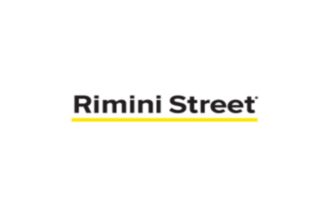AppsFlyer, the global attribution and marketing analytics leader, released the 2021 edition of its State of eCommerce App Marketing Report, which found that consumers in Southeast Asia (SEA) have significantly increased in-app purchases in 2021 compared to 2020. On average, the six SEA markets examined (Indonesia, Malaysia, Philippines, Singapore, Thailand, and Vietnam) have seen a 240% increase in spending, with the Philippines experiencing a massive 371% increase, the highest growth in purchases in the region.
AppsFlyer’s 2021 State of eCommerce App Marketing Report tracked data from 1.7 billion eCommerce app installs across APAC, from 920 apps and 9 billion remarketing conversions between January 2020 to July 2021.
With the pandemic undoubtedly changing the way Southeast Asians spend, many are buying online for the first time due to intermittent lockdowns and social distancing measures. This is why the region has seen a 13% to 35% rise in in-app revenue from March to July 2021, despite global in-app spend falling 2.05%. In order to capture and convert these first-time users, eCommerce marketers have also doubled down on their ad campaigns after March 2020. This has resulted in an overall uptick in year-over-year non-organic installs (NOI) in the region, with the Philippines (215%), Indonesia (104%), and Malaysia (69%) noting the highest growth. Meanwhile, marketers in Singapore dialled back on marketing campaigns due to user acquisition cost, with NOI increasing just 28%.
AppsFlyer’s report also found that app remarketing on iOS saw growth in 2021 across all six SEA markets, even after Apple introduced new privacy rules and disabled Identifier For Advertisers (IDFA) in April 2021. In fact, Indonesia – an Android-dominant market – saw the most robust growth, with remarketing conversions on iOS shooting up 98% from April to July 2021, and Android remarketing conversions falling 4.4%. This contrasts with global figures, where iOS remarketing conversions dropped 22.4% and Android observed an 8.2% increase during the same period. Marketers in SEA should therefore tap into remarketing conversions for iOS as a key strategy to entice repeat purchases from users.
Sam Chiu, Senior Director of Marketing, APAC, AppsFlyer, said: “Up until March last year, Southeast Asia was still a significantly offline market – at least when it comes to the mobile app space, and the majority of people did not have online banking or contactless payment options. Now, just 1.5 years later we are on the cusp of a paradigm shift as Southeast Asia is poised to experience a digital shopping wave; what businesses do now can determine their market share over the next few years. This is why it is crucial that marketers advocate for higher budgets to invest in ad campaigns to acquire new users and remarket to existing ones. Companies should focus on increasing brand awareness and building customer loyalty now before they miss the boat.”
With overall SEA app installs steadily rising in 2021, it’s no surprise that fraudsters will attempt to take advantage of the burgeoning demand for eCommerce apps. In fact, AppsFlyer’s report found that eCommerce apps’ exposure to fraud was USD 58 million in APAC between Q4 2020 to Q1 2021. Although this number is high, it is improving: Malaysia and Indonesia both saw an almost 80% reduction in year-over-year fraud rates when comparing January 2020 to January 2021 – reiterating the importance of vigilance and anti-fraud solutions.
The full version of the latest AppsFlyer 2021 State of eCommerce App Marketing Report is available at https://www.appsflyer.com/infograms/state-of-ecommerce-2021/

















